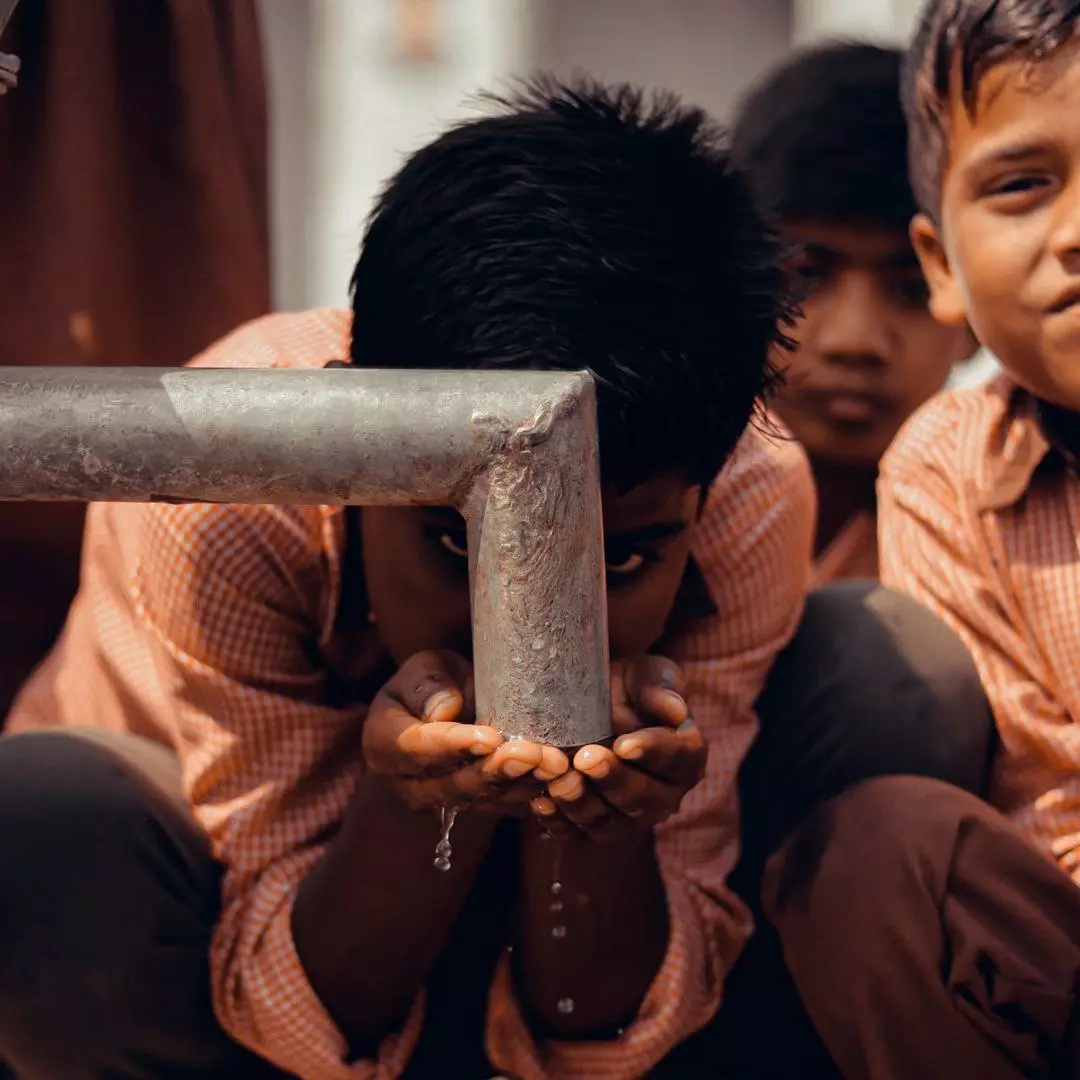
Image Credits: Pexels (Representative)
Jal Jeevan Mission Provides Safe Tap Water To 12 Crore Rural Households
Writer: Aakanksha Jetley
She is a passionate creative writer aspiring to be a journalist. An avid reader, writer-performer, and appreciator of poetry who is in complete awe of everything art. She closely follows all updates related to politics, lifestyle, travel, and the entertainment industry.
India, 17 May 2023 12:20 PM GMT
Editor : Ankita Singh |
A literature lover who likes delving deeper into a wide range of societal issues and expresses her opinions about the same. Keeps looking for best-read recommendations while enjoying her coffee and tea.
Creatives : Ankita Singh
A literature lover who likes delving deeper into a wide range of societal issues and expresses her opinions about the same. Keeps looking for best-read recommendations while enjoying her coffee and tea.
The development, implementation, operations, and maintenance (O&M) of rural piped water supply projects have strongly emphasized community involvement to ensure the long-term sustainability of the programs.
The Jal Jeevan Mission (JJM) has reached a key milestone by providing clean and safe drinking water through taps to over 12 crore rural families across the country, according to a statement issued by the Ministry of Jal Shakti.
Prime Minister Narendra Modi launched the mission on August 15, 2019, with only 3.23 crore rural families accessing piped water connections. As of today, five states Haryana, Punjab, Gujarat, Goa, and Telangana, as well as three union territories - Puducherry, Andaman and Nicobar Islands, Daman, and Diu and Dadra and Nagar Haveli, have officially announced 100% water coverage.
Himachal Pradesh and Bihar, in the meantime, will reach saturation shortly, with 98.35% and 96.05%, respectively. Whereas Haryana, Punjab, Goa, the Andaman and Nicobar Islands, Puducherry, Dadra Nagar Haveli, and Daman and Diu have been certified as 'Har Ghar Jal' states/UTs, where citizens have confirmed that all households and public institutions receive a sufficient, safe, and consistent water supply.
According to the ministry, governments have also helped to make tap water available in 9.06 lakh (88.55%) schools and 9.39 lakh (84%) anganwadis.
Safe & Affordable Water For All
The development, implementation, operations, and maintenance (O&M) of rural piped water supply projects have strongly emphasized community involvement to ensure the long-term sustainability of the programs. In India, more than 5.24 lakh Village Water & Sanitation Committees (VWSC)/ Pani Samitis have been formed, and 5.12 lakh Village Action Plans (VAPs) have been developed, including plans for drinking water source augmentation, greywater treatment and reuse, and regular O&M of in-village water supply systems according to a report in Live Mint
By providing safe water through taps to every household, school, Anganwadi, and other public institution in rural areas, the JJM is trying to achieve Sustainable Development Goal 6, which is safe and affordable water for all.
For the people living in rural areas, the JJM has had a considerable positive socioeconomic impact. The supply of consistent tap water has relieved the rural population, particularly women and young girls, of the strain of transporting heavy buckets of water to satisfy their daily household needs, hence lessening age-old hardship.
Also Read : Do Viral Images Show Recent Attacks On Jain By Muslims In Karnataka? No, Viral Claim Is False
 All section
All section













